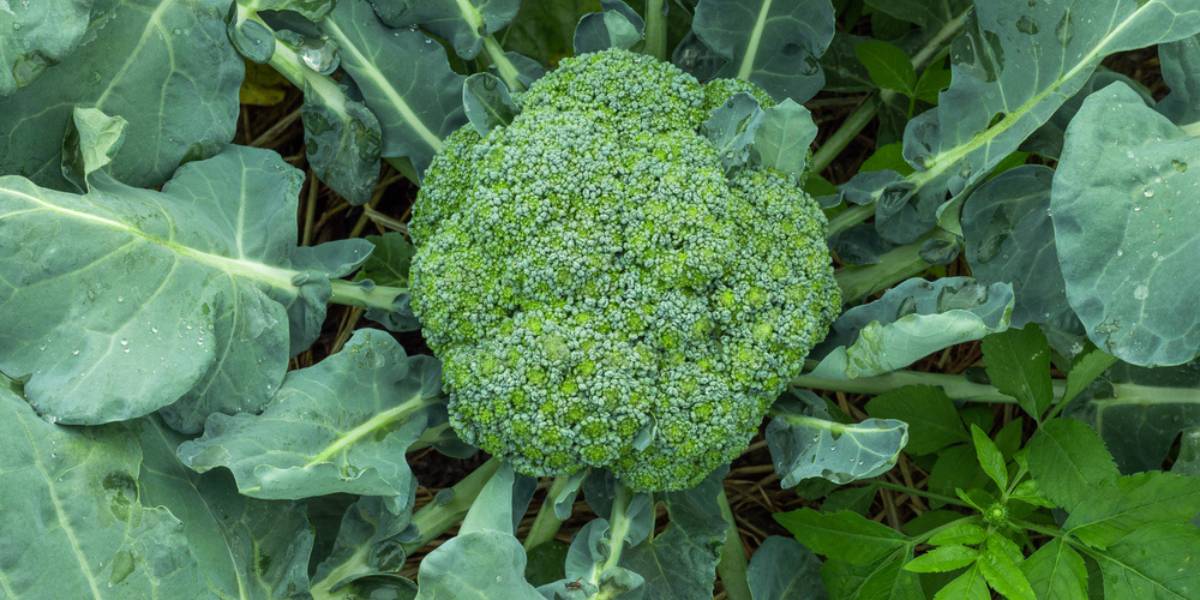Caring for broccoli involves providing it with the necessary conditions for healthy growth and protecting it from common issues.
Here are some essential care tips for broccoli:
- Sunlight and Soil: Broccoli thrives in full sun, requiring at least 6 to 8 hours of sunlight daily. Plant it in well-draining, fertile soil that is rich in organic matter. Maintain the soil pH between 6.0 and 7.0 for optimal growth.
- Watering: Broccoli needs consistent moisture to develop properly. Ensure the soil remains consistently moist but not waterlogged. Water the plants regularly, especially during dry periods, aiming for about 1 to 1.5 inches of water per week. Avoid getting the developing heads wet to prevent rot.
- Fertilization: Apply a low-nitrogen fertilizer three weeks after transplanting the seedlings. A balanced 5-10-10 formula can provide the necessary nutrients without encouraging excessive leaf growth. Avoid over-fertilizing, as this can lead to poor head development.
- Mulching and Weeding: Mulch around the plants to retain soil moisture, suppress weeds, and maintain soil temperatures. Weed the area regularly to prevent competition for nutrients and water.
- Pest and Disease Control: Utilize row covers to protect broccoli from pests and minimize the use of chemical pesticides. Regularly inspect the plants for signs of pests or diseases, such as aphids or fungal infections, and take appropriate measures to control them.
- Harvesting: Harvest the main broccoli heads in the morning when the buds are tight and firm, just before the heads begin to flower. Make clean cuts, leaving at least 6 inches of stem. Continue to monitor the plants for side-shoot development, as these secondary heads can be harvested for weeks after the main harvest.
By following these care guidelines, you can ensure the successful growth and production of broccoli in your garden, allowing you to enjoy this nutritious and delicious vegetable throughout the growing season.




